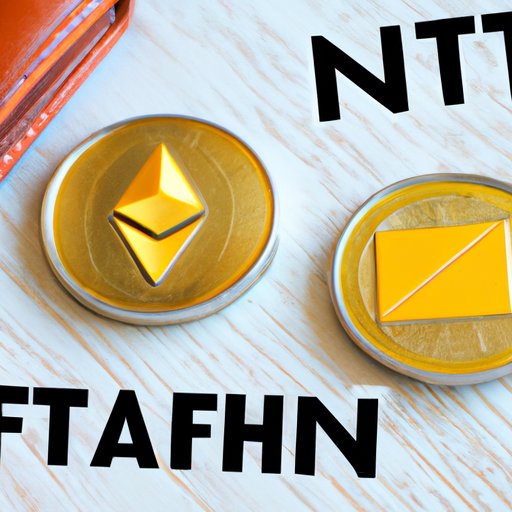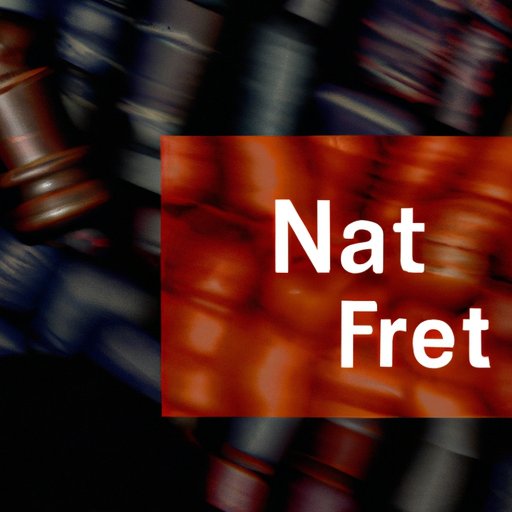Introduction
If you’ve been anywhere near the internet lately, you’ve probably heard about NFTs, or non-fungible tokens. In simple terms, NFTs are digital assets that represent ownership of unique items like artwork, music, and videos. NFTs are stored on the blockchain, a decentralized digital ledger that allows for secure and transparent transactions.
Understanding NFTs is becoming increasingly important as more artists, musicians, and creators enter the NFT market. It’s essential to understand how to purchase and value these unique digital assets if you’re looking to enter the world of NFTs.
The purpose of this guide is to help beginners navigate the NFT market. We’ll cover everything from the basics of NFTs to choosing the right marketplace, establishing a cryptocurrency wallet, researching the value and authenticity of NFTs, bidding and winning NFT auctions, diversifying your NFT portfolio, and legal and tax implications of NFT transactions.
Understanding the Basics of NFTs: A Beginner’s Guide
To understand NFTs, you need to understand what makes them unique. NFTs are special because they represent ownership of unique digital items.
A simple analogy is to think of a physical painting: anyone can have a copy of the Mona Lisa on their phone, but if you own the real painting, you have something unique and valuable. NFTs work the same way.
When you buy an NFT, you’re buying the ownership of a digital asset. These assets can range from art to music to video, but what makes them valuable is that they’re unique and owned by you. NFTs are stored on the blockchain, making them secure, transparent, and unalterable.
As with any investment, there are risks associated with NFT ownership. Values can fluctuate, and there’s a lot of uncertainty in the market as a whole. However, many NFTs have seen significant price increases, making them an enticing addition to any investment portfolio.
Some popular NFTs to keep an eye on include CryptoPunks, NBA Top Shot, and Bored Ape Yacht Club.
Choosing the Right NFT Marketplace: A Comprehensive Review
Now that you understand the basics of NFTs let’s discuss how to choose the right NFT marketplace for your needs.
There are several different NFT marketplaces to choose from, each with its pros and cons. Some popular options include OpenSea, Rarible, and SuperRare.
When choosing a marketplace, it’s essential to consider factors like fees, user experience, and the number of available NFTs. It’s also vital to consider the community of the marketplace: some marketplaces attract different levels of artists and collectors, creating unique subcultures and investment opportunities.
Researching different marketplaces and experimenting with a few is the best way to find the right one for your needs.

Establishing a Cryptocurrency Wallet: A Crucial Step for NFT Buyers
Cryptocurrency wallets are essential for buying and owning NFTs. These wallets store the cryptocurrency used to purchase NFTs, making them a necessary tool for interacting with the NFT market.
Cryptocurrency wallets come in two main types: hot wallets and cold wallets. Hot wallets are connected to the internet and are easier to use, while cold wallets are offline and offer greater security.
Setting up a cryptocurrency wallet typically involves creating an account, verifying your identity, and transferring cryptocurrency to your wallet.
Researching the Value and Authenticity of NFTs: Tips and Tricks
Buying an NFT is like buying any other asset: researching its value and authenticity is crucial. Fortunately, numerous tools and resources can help you research NFTs.
Some popular resources include CryptoSlam, Nansen, and DappRadar. These resources allow you to look up specific NFTs, view their sales history, and track their value over time.
It’s also essential to be aware of potential red flags when researching NFTs. These red flags can include low transaction volume, no sales history, and vague or incomplete descriptions.
Bidding and Winning NFT Auctions: How to Increase Your Chances
Bidding on NFT auctions can be intimidating, but with the right strategies, you can increase your chances of winning.
First, it’s essential to set a budget and stick to it. Bidding on NFTs can be exciting, and it’s easy to get caught up in the moment and overspend. However, it’s essential to remember that there will always be more opportunities to bid on NFTs in the future.
It’s also important to research the seller and the NFT before bidding. Understanding the NFT’s value and the seller’s credibility can help you make more informed bidding decisions.
Finally, it’s essential to be patient. Winning NFT auctions requires patience and strategy, so don’t get discouraged if you don’t win your first auction.
Portfolio Diversification with NFTs: Why and How to Do It
Diversifying your NFT portfolio is crucial to managing risk and maximizing returns. By investing in a range of NFTs, you can spread your risk across different assets and improve your chances of profiting in the long term.
Some strategies for diversifying your NFT portfolio include investing in a range of different asset types, considering NFTs from different marketplaces, and investing in multiple NFTs from the same artist or collection.
Building a balanced NFT portfolio takes time and requires careful research, but the rewards are well worth the effort.
Navigating Legal and Tax Implications of NFT Transactions: What You Need to Know
Like any investment, NFTs have legal and tax implications. Understanding these implications is essential for protecting your investment and avoiding legal issues down the line.
Some key things to consider when navigating the legal and tax implications of NFT transactions include understanding applicable laws and regulations, consulting a tax professional, and keeping detailed records of NFT purchases and sales.
Conclusion
Becoming a successful NFT investor requires time, patience, and research. By understanding the basics of NFTs, choosing the right marketplace, establishing a cryptocurrency wallet, researching the value and authenticity of NFTs, bidding and winning NFT auctions, diversifying your portfolio, and navigating legal and tax implications, you can make informed NFT buying decisions and become a successful NFT investor.
